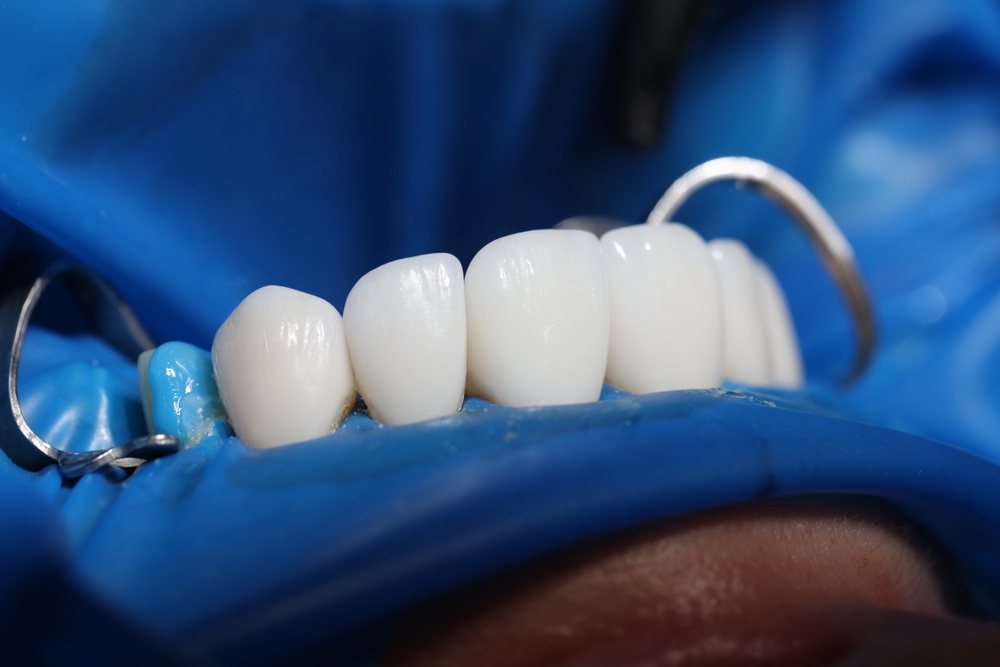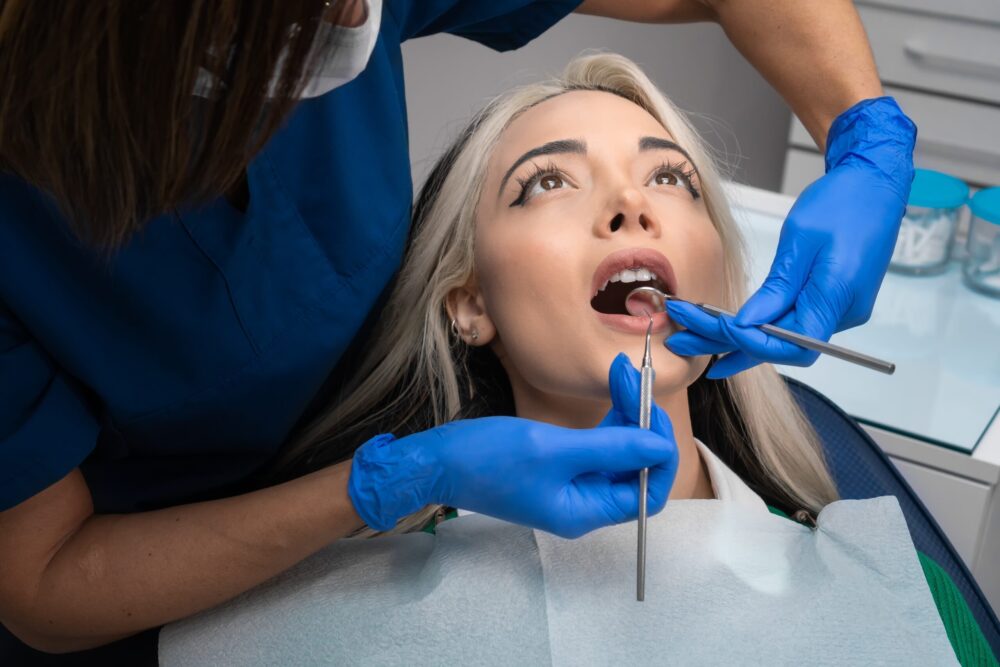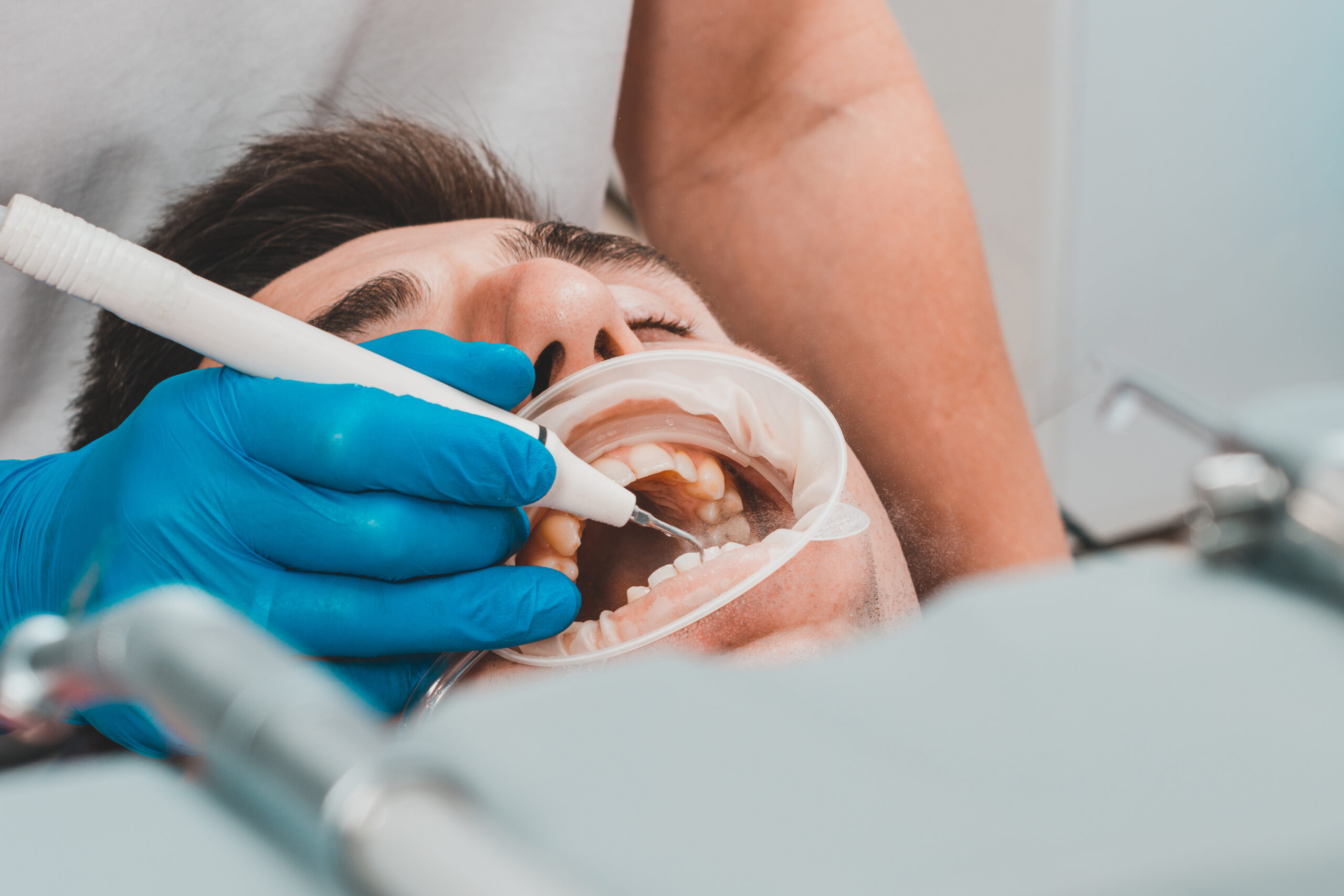A tooth abscess is a pus-filled pocket that develops around tooth roots in cases of severe infection. It can often be extremely painful and can lead to the need for tooth extraction. Getting dental care as soon as possible is key to finding relief and saving your tooth. Here’s what you should know about having a dental abscess.
Recognizing the signs and symptoms of a tooth abscess.
A tooth abscess is relatively uncommon and typically only appears after teeth have suffered damage or intensive decay and have been causing pain and other issues for some time. However, there are also cases when the pain from a tooth abscess can come on suddenly.
Severe toothache is one of the most common symptoms. If you have sudden tooth pain or have been dealing with persistent tooth pain, then you should contact your dentist immediately. Even if it isn’t an abscess, something is wrong with the tooth, and you may need treatment to prevent the issue from getting worse.
Swelling is another sign of a tooth abscess. You may notice swelling in the gums or cheek around the affected tooth. These are the results of both tooth infection and the tooth abscess itself.
A tooth abscess is caused by an infection, so you may also have other symptoms related to the infection. Fever is one example and should be taken very seriously. Contact your dentist right away if your tooth pain is accompanied by a fever, and seek out emergency medical care if your dentist is not available.
The pus inside the dental abscess may drain into the mouth. This creates a bad taste—often salty, metallic, or sour. Depending on the quantity of pus, you may also notice a foul odor.
Immediate Steps to Take
The first thing you should do if you have symptoms of a tooth abscess is to contact your dentist. They will be able to provide further guidance for immediate relief. They will also tell you whether you’ll need to come in for emergency dental care or schedule a later appointment.
Tooth abscesses can be extremely painful, so achieving relief is a top priority. A warm salt water rinse is an excellent solution for immediate relief. Stir half a teaspoon of salt into a cup of warm water. Rinse the solution around your mouth for about 30 seconds and spit it out. Do this every two to three hours. Make sure to use warm water, not hot.
Over-the-counter pain relievers are another potential option to reduce the pain of a dental abscess. Be careful to follow dosage instructions carefully. Keep in mind that relieving the pain doesn’t mean the problem has gone away. You’ll still need dental treatment to resolve the issue.
A cold compress tackles both pain and swelling. Wrap an ice pack in a soft cloth and apply it to the cheek in the affected area. This should provide some relief and soothe you until you’re able to visit your dentist for proper treatment.
Avoiding Further Complications
A dental abscess is a serious oral health issue. It’s important to avoid doing anything that might make the issue worse. Some patients believe that the abscess will be fine after they are drained, but this is not the case for a tooth abscess. You will need treatment no matter what.
Attempting to drain the abscess yourself can make your situation much worse. Given the placement of most tooth abscesses around the roots, chances are you won’t be able to do so effectively. Pushing on the tooth or the gum tissue near the abscess may cause further damage or spread the infection to other tissues.
Instead, you’ll need to reach out to your dentist and follow their guidance. Once you visit their office, they will evaluate the situation and determine the best course of action. Depending on the extent of the abscess and infection, tooth extraction may be necessary to remove the severely infected tooth, for relief and to safeguard your oral health.
In other cases, a root canal treatment may be an option to treat the abscess and infection. Affected pulp tissue inside the tooth is removed, and a dental crown is used to cap and reinforce the tooth. Your dentist will also provide guidance on how to prevent this and other oral health issues from happening in the future.
Your Dentist in Hampton/Griffin, Georgia, for Emergency Dentistry
If you have any symptoms of a tooth abscess, don’t hesitate to contact us right away for emergency dentistry from your dental office in Hampton or Griffin, Georgia. The team at Allred Family Dentistry provides a variety of treatment options for any dental emergency. Contact us today for any of your dental needs.






